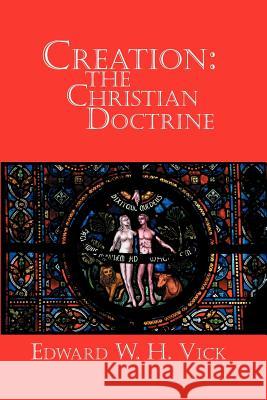Creation: The Christian Doctrine » książka
Creation: The Christian Doctrine
ISBN-13: 9781938434020 / Angielski / Miękka / 2012 / 138 str.
Christian discussions of creation or origins typically start with one of the standard positions on this contentious doctrine and then presents the arguments in favor of that position. In this book, Edward W. H. Vick looks at creation as a matter of systematic theology. What does it mean for a doctrine to be called "Christian"? How does one derive and express a doctrine of creation that is truly Christian in content? He starts by distinguishing biblical theology, the topic of companion volume Creation in Scripture by Herold Weiss, from the systematic theology approach used in this book. This book is divided into three parts. Each has its own style and function. The first presents an introductory statement about how we approach a doctrinal explanation of the theme of Creation. Then we give a theological account of the meaning of the assertion that God is Creator. The second presents statements by representative respected theologians, as they expound the theme and argue for a separation of theology from science. It presents some quite basic positions. The third is in the form of a conversation-an effective way of introducing differing points of view pro and con. Finally, the book includes a series of questions for each chapter, making it useful as a basis for group study and discussion.
Christian discussions of creation or origins typically start with one of the standard positions on this contentious doctrine and then presents the arguments in favor of that position. In this book, Edward W. H. Vick looks at creation as a matter of systematic theology. What does it mean for a doctrine to be called "Christian"? How does one derive and express a doctrine of creation that is truly Christian in content? He starts by distinguishing biblical theology, the topic of companion volume Creation in Scripture by Herold Weiss, from the systematic theology approach used in this book.This book is divided into three parts. Each has its own style and function.The first presents an introductory statement about how we approach a doctrinal explanation of the theme of Creation. Then we give a theological account of the meaning of the assertion that God is Creator.The second presents statements by representative respected theologians, as they expound the theme and argue for a separation of theology from science. It presents some quite basic positions.The third is in the form of a conversation-an effective way of introducing differing points of view pro and con.Finally, the book includes a series of questions for each chapter, making it useful as a basis for group study and discussion.











